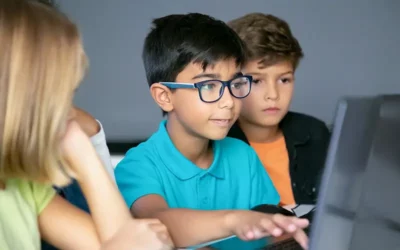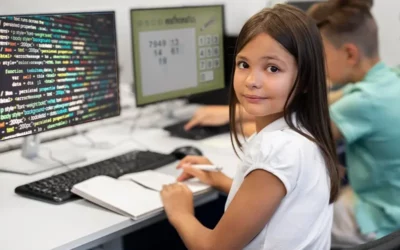Financial literacy is important for teenagers because it prepares them to make sound financial decisions. Hands-on, practical money management experiences must be emphasized. It teaches children how to budget, save, and spend sensibly, preparing them for financial independence and success in adulthood.
This article will look at money management tasks that teenagers can complete. These activities provide children with hands-on experiences that help them develop important financial skills such as budgeting, saving, investing, and making good spending decisions. By participating in these activities, teenagers can lay a solid basis for a financially secure future.
Table of contents
1. Reality Check Simulation:

- In the realm of financial education for kids, a valuable tool for teenagers is the Reality Check Simulation. This hands-on experience offers a practical approach to money management, helping them understand the real-world implications of financial decisions and develop essential life skills for responsible financial management.
- A key aspect of this simulation involves creating a realistic monthly budget for teens. They learn to allocate their income wisely, balancing earnings and expenditures. It introduces them to essential expenses, including rent, utilities, groceries, and discretionary spending.
- Moreover, the simulation encourages reflection on the challenges of managing limited resources. Teens gain insight into the importance of prioritizing needs over wants and making informed financial decisions.
- This invaluable exercise equips them with essential life skills, fostering financial literacy and responsible financial habits for a successful future.
2. Entrepreneurial Adventure:
- Encouraging teenagers to explore entrepreneurship can be a transformative experience, introducing them to the practical aspects of money management for kids. By setting up a small business or participating in a simulated business project, they gain hands-on exposure to essential skills. This includes budgeting, a fundamental aspect of financial management, helping them grasp the importance of resource allocation. Pricing strategies become clear, teaching them how to position their products or services competitively. This hands-on approach not only imparts valuable financial knowledge but also fosters entrepreneurial spirit and financial acumen.
- Managing profits and losses becomes more than just a theory; it becomes a real-life lesson. These experiences not only foster financial literacy but also instill a sense of innovation, resilience, and responsibility. Entrepreneurial adventures during adolescence can pave the way for future success and financial acumen.
3. Investment Game:

- The Investment Game is an innovative tool to teach financial literacy and investment strategies, making learning fun and interactive, much like memory games for kids. In this simulated game, participants are introduced to the fundamental concepts of investments, providing a hands-on experience in a risk-free environment.
- Players explore different investment options, including stocks, bonds, and mutual funds, learning how each function and its potential returns. They can create diversified portfolios and analyze their performance.
- Emphasizing the risks and rewards of various investments, the game helps participants make informed decisions, providing an interactive approach to learning about investments and catering to the use of online games for kids. It educates them about the importance of balancing their risk tolerance and financial goals. The Investment Game is a valuable resource for fostering financial acumen and preparing individuals for real-world investment choices.
4. Charity Budgeting:
- Charity Budgeting is a powerful practice that encourages individuals to allocate a portion of their budget for charitable giving, making it a valuable lesson in budgeting for kids. It promotes conscious financial decisions that prioritize philanthropy.
- Participants engage in researching and selecting causes that align with their values and passions, ensuring their donations make a meaningful impact. This not only instills responsible financial practices but also nurtures a sense of compassion and social responsibility in the younger generation.
- Understanding the impact of philanthropy is a key component. It highlights the positive influence on both the community and personal fulfillment. By budgeting for charity, individuals not only contribute to the greater good but also experience the satisfaction and joy that come from making a difference. This practice fosters a culture of giving and enriches lives while improving society.
5. Future Planning Workshop:

- The Future Planning Workshop is a crucial educational event designed to equip teens with financial readiness and teach kids responsibility. In this workshop, participants gain insights into prudent financial management by discussing future expenses. It emphasizes the importance of saving for essential milestones such as college, emergencies, and long-term goals, instilling a sense of responsibility. This valuable lesson sets the stage for a financially secure and responsible future.
- Teens are introduced to various savings and investment vehicles tailored to their needs, empowering them to make informed choices.
- By imparting these skills early on, the Future Planning Workshop fosters financial independence and equips young individuals with the tools to secure their financial future, encouraging responsible financial planning from an early age.
6. Comparison Shopping Challenge:
- The Comparison Shopping Challenge is a valuable exercise for teaching teenagers responsible spending habits and nurturing critical thinking skills for kids. It equips them with essential life skills, fostering financial responsibility. Participants are tasked with comparing prices, reading product reviews, and making informed purchase decisions. This not only saves money but also encourages critical thinking.
- Moreover, the challenge emphasizes value-based spending, prioritizing quality over quantity, and steering clear of impulsive purchases. It empowers teens to navigate a consumer-driven world, preparing them to make wise financial choices, budget effectively, and ultimately become more financially independent. By mastering the art of smart shopping, they set a strong foundation for a secure financial future.
7. Monthly Money Talks:

Monthly Money Talks offer a vital platform for parents to engage with their teenagers on financial matters. By establishing a routine for open discussions about finances, these conversations create a comfortable space for teens to express their experiences, challenges, and successes in managing money. This fosters financial transparency and encourages responsible financial behavior. Parents can provide guidance, share insights, and help teens develop essential money management skills. Through these discussions, teens gain practical knowledge, learn from real-world examples, and become better equipped to make informed financial decisions, setting them on a path toward a financially secure future.
Conclusion:
Money management activities for teens encompass hands-on exercises designed to teach financial responsibility. These activities help teens gain practical experience in budgeting, saving, and making wise financial decisions. By engaging in such activities, teenagers develop critical life skills, setting them on a path to financial independence and a secure financial future.
To get your hands on more educational and free resources on coding for kids, robotics for kids, financial education for kids, etc., do check out the BrightCHAMPS Page now!
To get your hands on more such articles, educational content, and free resources on coding for kids, robotics courses, game development, etc., check out the BrightCHAMPS Blog Page now!
Frequently Asked Questions ( FAQs )
A1. Teaching teens about money management is crucial to prepare them for financial independence and responsible decision-making in today’s complex financial world.
Q2. Can you share some practical tips for introducing financial concepts to teenagers in a relatable manner?
A2. Introduce financial concepts to teenagers by relating them to their interests and goals, making them practical and relatable.
Q3. How can parents make money management activities engaging and enjoyable for their teens?
A3. Engage and make money management enjoyable for teens by involving them in family financial discussions and decisions and incorporating games or challenges.
Q4. What are some age-appropriate money management activities that strike a balance between education and fun for teenagers?
A4. Age-appropriate money management activities for teens include setting savings goals, budgeting for personal expenses, and tracking spending while enjoying games or simulations.
Q5. In what ways can teens learn about budgeting and saving money through real-life experiences rather than traditional classroom lessons?
A5. Teens can learn budgeting and saving through real-life experiences by managing their allowances, part-time job earnings, or involvement in family financial planning.


 We are an army of educators and passionate learners from BrightChamps family, committed to providing free learning resources to kids, parents & students.
We are an army of educators and passionate learners from BrightChamps family, committed to providing free learning resources to kids, parents & students.












